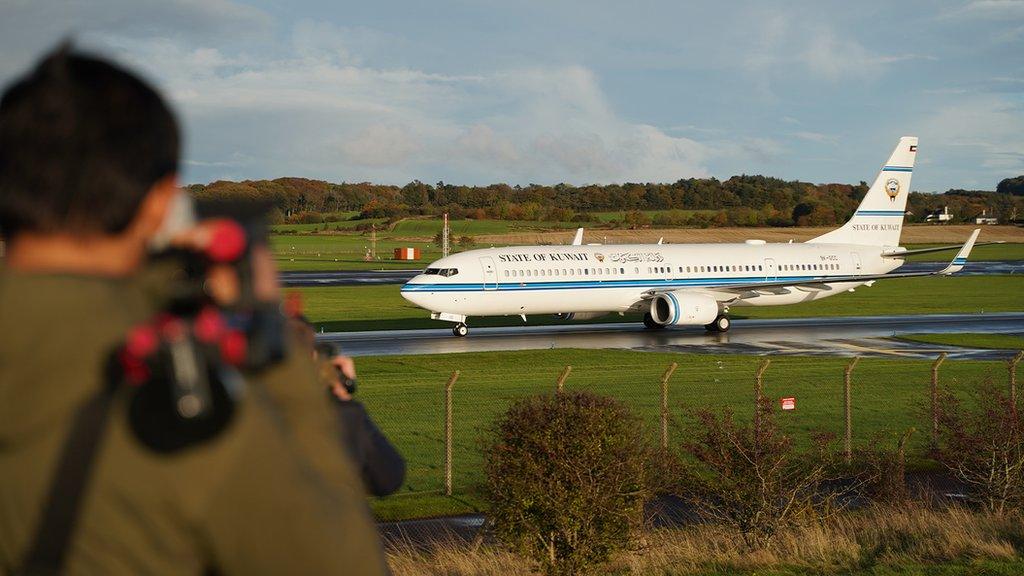Glasgow's COP26 success and the implications for business
- Published
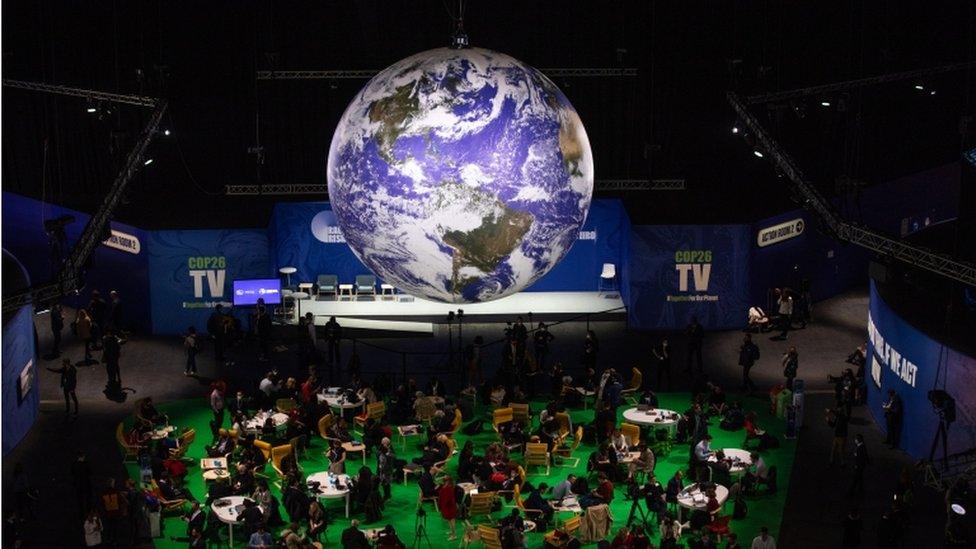
The COP26 summit was a successful showcase for Glasgow, and for the social and business benefits of getting back together, post-Covid.
It highlighted the business travel industry as conference traffic gets back to growth, following an unprecedented Covid shock. It is having to adapt.
Patterns of working will have changed forever, including the merger of work with leisure time as people book desirable locations to meet and then stay on for remote work mixed with travel.
The Glasgow Climate Pact may not have lived up to expectations for reduced carbon emissions and limiting global warming: but the COP26 gathering that led to the agreement certainly did.
The past week has been a hectic one for the former United Nations territory on the north bank of the Clyde, as it was returned to the control of the UK Cabinet Office and much of the township dismantled.
That work is far from finished, but the vast suspended spinning globe was removed from the Hydro in time for Fat Boy Slim, and the conference centre should be fully brushed and flossed in time for a conference of dental hygienists by the end of this month.
Kathleen Warden, who leads the conference division of the Scottish Event Campus, was getting messages throughout the fortnight from other conference venues and from clients to say how good Glasgow was looking.
The Armadillo, the Hydro, the Squinty Bridge, Finnieston Titan crane and the River Clyde itself provided the iconography.
Even though some US news networks and the UK prime minister himself seemed to think that Glasgow and Edinburgh were one and the same, there wasn't a media market around the globe that wasn't aware that this was the crossroads for what Warden calls the world's most important gathering this year. It was one that made her team immensely proud.
Treading lightly
Almost every nation was represented. Heads of government came to Glasgow from most of them. There were 37,000 accredited delegates. And although Covid and security conspired to bring notoriously long queues, there were no significant security breaches, and street protests met with firm but mostly amiable policing.
The evidence so far suggests much lower level of Covid transmission than in the general population, and the weather was unseasonably settled and sunny, with the exception of the drookit Saturday for the big march.
So if that can be seen as a success, what next for the Glasgow host city and for Scottish tourism?
VisitScotland, with other Scottish government agencies, tapped into the environmental zeitgeist with promotional videos issued during COP26 that highlighted Scotland's outdoors and green awareness. One was titled "treading lightly".
This did not seem the appropriate moment to encourage visiting dignitaries, delegates and media to sample Scotland's golf courses or to burn fossil fuels round the North Coast 500.
However, the message that "Scotland is Open" - the slogan and top line takeaway from Scottish government marketing - will not have been lost on both visitors and distant observers.
The same theme is being aimed at visitors, travellers, potential migrant workers and students, and at investors.
Social business beings
At the Scottish Event Campus, with its exhibition, conference and concert facilities, bookings are picking up, after 20 dismal months of cancellations, uncertainty and temporary conversion into the Louisa Jordan NHS hospital.
Kathleen Warden explained to me that, in normal times, 80% of its conference activity is "associations" - from philatelists to those dental hygienists. They have to get back to meeting, she argues. Not doing so is not an option.
And for all the Zoom and Teams meetings, with which people have both kept in touch and found an alternative to business travel for meetings, nothing beats the chemistry, social interaction and serendipity of medics, scientists and technologists meeting and sharing and getting to understand one another.
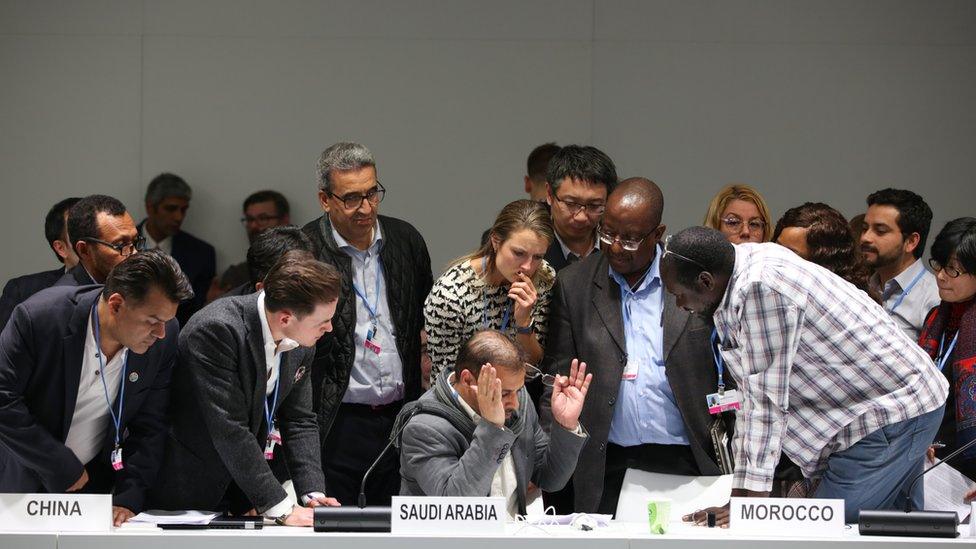
Climate negotiations involved people meeting face to face
Professor John Lennon, an expert in travel and tourism at Glasgow Caledonian University, acknowledged that work had changed, and cities with it.
More people are working from home and will continue to do so, he said, but that means employers have to focus all the more on bringing them together on occasion - to inform, inspire, evoke and manage them.
Team-building may therefore become a more important part of that, taking participants out of conventional conference activities and into more practical, social and enjoyable activities. Think of it as a large, quite expensive, office water cooler.
It's reasonable to assume that we have learned to value social interaction more, having spent so many months being denied it. And that value can translate into earnings.
Long-stay parking
Lennon says Scotland has not done all that well at converting the potential for drawing people out of such conferences and events and sending them out around Scotland to sample the leisure options.
That may be changing, he notes: AirBnB booking figures are growing most strongly in the category of 28-days-plus.
That suggests people are travelling to a city for work, and opting to stay there for leisure and for continuing remote work from a different, temporary home - making the most of the change of view and travelling more slowly, with less impact on the planet.
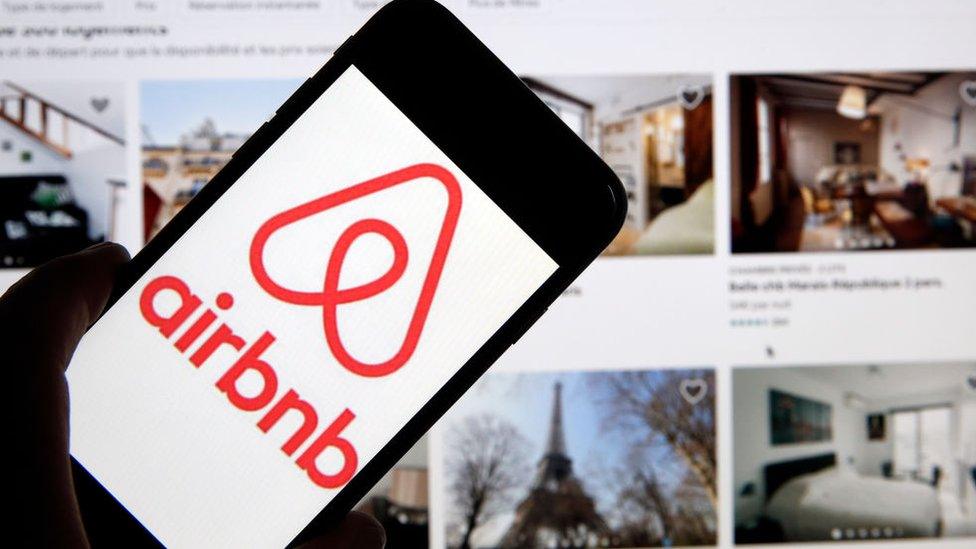
AirBnB booking figures are growing most strongly in the category of 28-days-plus
Kathleen Warden told me that the industry reckons on getting back to pre-pandemic levels of activity between next year and 2024.
A worse case scenario - in a study of the sector commissioned by Cities Restart, a grouping that want to see city centres kick-started back to life - would hit London particularly hard.
International travel is recovering more slowly than domestic, and leisure more quickly than business.
The metropolis had around 40% of the UK's international business events spend. And if Covid and uncertainty continue into a worst case scenario, then it would take nine years, to 2028, before a recovery returns London to pre-pandemic levels.
The Tourism Economics study, however, has a rosier scenario in which the business events market picks up pace to reach 43% more value by 2026 - more than £17bn.
It says international visitors for such events are worth six times more than domestic ones, external, at nearly £1,100 per head, and that gap has been growing.
Endemic Covid
For the global picture, another study for the World Travel and Tourism Council (WTTC), working with McKinsey consultancy, the estimate is of growth by quarter this year, reaching two-thirds of its previous level during 2022.
But the report, published earlier this month and snappily titled "Adapting to Endemic Covid-19: The Outlook for Business Travel", brings a reminder of just how precipitous the decline has been.
It concludes that the travel and tourism sector as a whole suffered losses of US$4.5 trillion, with 62 million jobs lost worldwide.
Domestic visitor spend was down 45% in 2020 and international by 69%.
Although business travel represented only 21% of global travel in 2019, it has been much more important to some city destinations and to some travel companies.
Pre-pandemic, the WTTC report says that business travel brought around 70% of revenue for the world's high-end hotel chains.
And although business travellers only represent around 12% of air passengers, their premium seats and flexible ticketing brought in between 55 and 75% of airline profits.
Even with recovery, it seems unlikely that such patterns of spending will recover unchanged.
The challenge for the industry is to invest in facilities - including the technology for hybrid conferences of attendees and remote contributions - and to be nimble in adaptation to new ways of working and meeting.
There will be business opportunities as well as challenges.
As Scotland's airports saw at the start of COP26 when heads of government arrived, one business travel sector that has done well out of Covid, and the reduction in scheduled flying, happens also to be among the worst for the environment: the market for private jets.
- Published15 November 2021
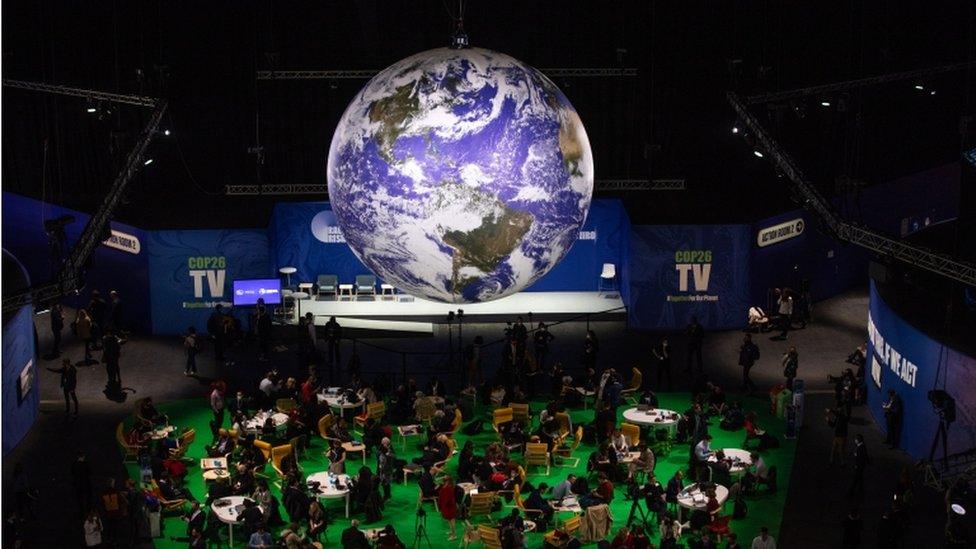
- Published15 November 2021
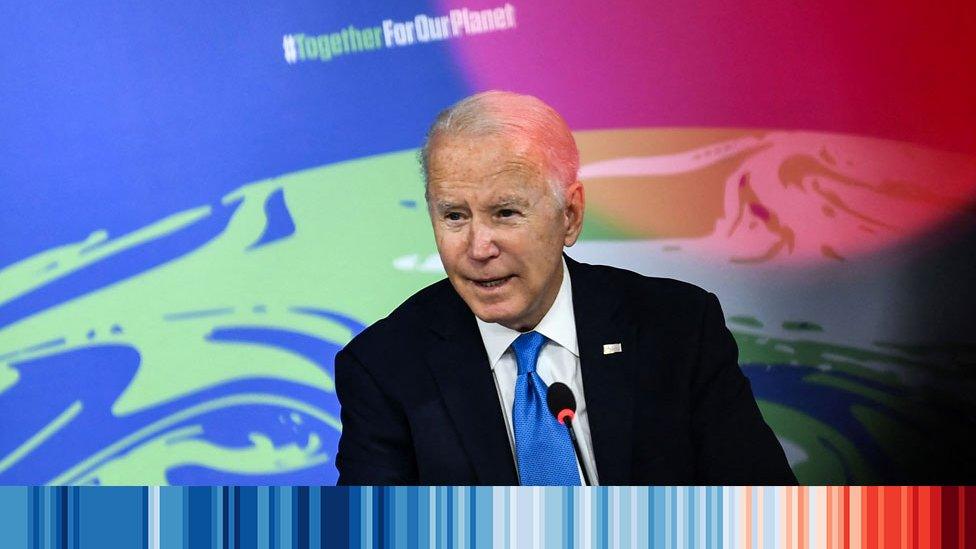
- Published1 November 2021
